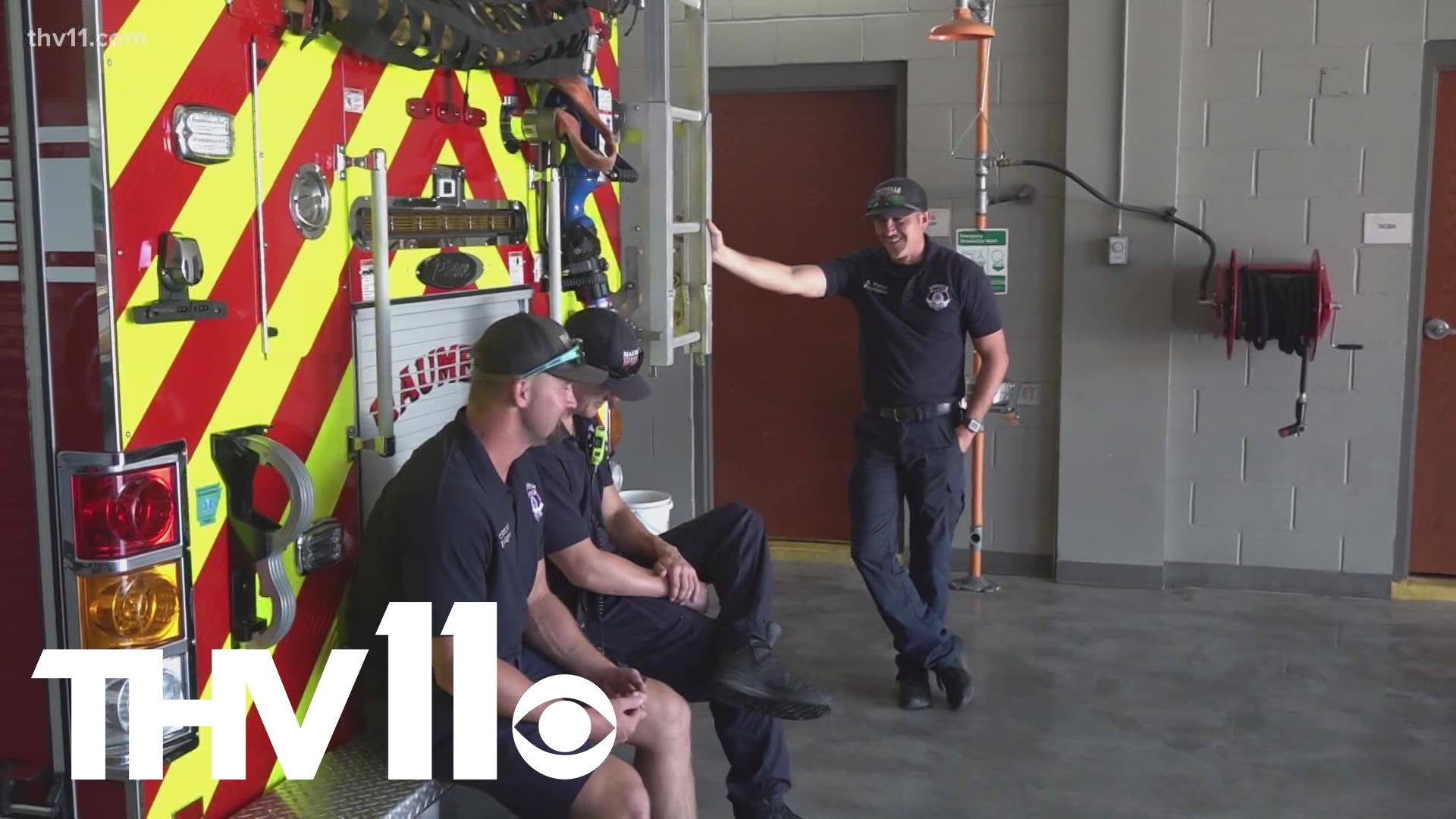MAUMELLE, Ark. — Summer has arrived, and it has been in full force. When it's blazing hot outside, most people try to stay indoors. Some people, such as firefighters, cannot though, because their jobs require them to go out and fight the blazes.
The first responders have to wear heavy gear before heading out to the fires. And as you could imagine, things get a bit hot during this time of the year.
Tanner Johnson is a Lieutenant Paramedic for the Maumelle Fire Department.
"We never really fight fire in pretty weather," Johnson said.
He added that beating the heat isn't always an easy task.
During the scorching weather, the Maumelle Fire Department will bring in an extra set of first responders from nearby fire departments so that they have more manpower.
"We try to rotate them through to where we don't overwork out guys and push them into this heatstroke or heat exhaustion symptoms," said Johnson.
They implemented that extra step because first responders oftentimes enter burning buildings and those conditions can be quite extreme.
Johnson said, "It can be upwards of several 100 degrees inside some of these homes and it's hot. You can feel it."
Firefighters are typically dressed head to toe in body gear that can weigh nearly 100 pounds, all while having to work in extreme temperatures.
"A normal layer, full face mask, [and] from there, we wear a jacket that is built out of several layers and then from there, we wear bunker pants," Johnson described.
Water, of course, is something that is very highly used in his job.
"Before going to work, what I really try to do is to hydrate myself before I come in and make sure that I've had the adequate amount of water before I come on duty," Johnson stated.
The extreme temperatures inside a burning structure create challenges.
"You're trying to help their property. I'm not as worried about me in the high heat as I am just getting in and completing the job," Johnson said.
The brave firefighters understand that no matter what the weather is like, the call to an emergency is always one that must be answered.
"Snow to blaze, we're going to be there and we got to be prepared and ready to go," Johnson said.
Johnson also mentioned that when crews get back from a day of helping others, they also get checked out.
Firefighters must go through a protocol and get an infusion of fluids so they are prepared to answer the next bell.

